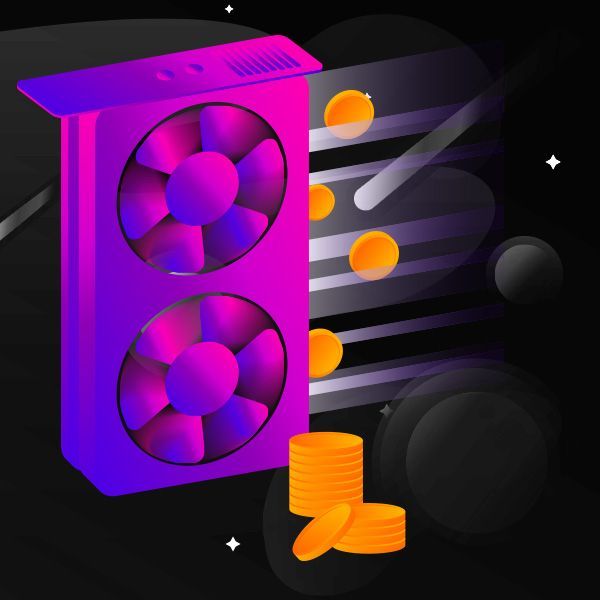What is Institutional Investor?
Let's find out Institutional Investor meaning, definition in crypto, what is Institutional Investor, and all other detailed facts.
An institutional investor is a legal entity or an organization taking part in the market trading on behalf of the clients, often retail investors. Institutional investors are considered the “elephants” in the stock market as they have a strong influence over the prices. They trade in massive volumes of assets daily, thus having a direct impact on the market price.
The role of institutional investors in the market has grown immensely over the past few years. They account for roughly 70% of the trading volume in nearly all asset classes. They do not put their own money into the trading but use the investment portfolios of their clients to make a profit.
The position of institutional investors was reinforced by the changes in the market structure, which saw the introduction of quantitative and algorithmic trading. Institutional investors can manage several funds at the same time, thus acting as vehicles of pooled investments.
Institutional investors are able to manage teams that analyze market shifts and trends to determine when the right time to invest is. Unlike retail investors that are exposed to more investment risk, institutional investors have better experience handling their financial instruments.
In many cases, institutional investors hire sell-side analysts who provide them with valuable data such as consensus estimates. This helps them to make investment decisions that are focused on long-term improvements of the portfolio value.
The trade volumes of institutional investors are so massive that they can affect the price discovery mechanism and the overall market growth. The pooled money that the investors bring into the market is critically important.
Institutional investors are seen as reliable, as in many cases, they are legal entities and, therefore, more likely to comply with laws and regulations. They have good market experience, are not as risk-prone as retail investors, and have good handling over the timing of their stop-loss orders, which minimizes possible losses.
There are six main types of institutional investors:
- Banks – banks are able to invest in bonds, private equity funds, and other assets on behalf of their clients; this includes commercial and central banks;
- Credit unions – financial organizations that allow members to purchase shares at predetermined rates. The members also act as owners of the organization and share the profit;
- Hedge funds – pooled investments that rely on strategies to help minimize competition and maximize leverage. They act as pooled investments where the manager plays the role of the general partner, and the investors act as limited partners. Hedge funds trade liquid assets;
- Insurance companies – organizations that trade the pooled premiums acquired from their clients for health or property coverage. The investment portfolio compensates the claims;
- Mutual funds – diversified investment companies. A manager is responsible for the investment pool. Each investor holds ownership of differing share percentages by contributing to the fund;
- Pension funds – investment pools that receive contributions from private and public sponsors. Pension funds are used to cover the years after retirement for beneficiaries who have opted into the fund.
While retail investors also play an important role in market trading, there are numerous notable differences between the two investor types. For starters, retail investors aren’t limited by tenets. They are able to make a decision on which portfolio they want to invest in.
Individual, small-scale investors are able to concentrate on short-term investments that grant them faster gains. Institutional investors tend to be more goal-oriented and employ trading strategies that focus on long-term investments in large capital.
Volatile markets can scare individual, small-cap investors from the market. Thus, retail investors are more likely to play safely in the field. Institutional investors are more likely to take advantage of the market swings to maximize their gains. The investment decisions are made based on information provided by side-sell analysts and financial experts.
Unlike retail investors, institutional investors are able to trigger and manage greater market activities. They can acquire multiple assets, which is not a possibility for retail investors. Institutional investors garner a far more preferential market treatment and are not subject to the same strict regulations.
Furthermore, it’s easier for institutional investors to acquire foreign securities and other assets.
Instant settlement network <strong>transactions happen<\/strong> 24 hours a day, in real-time, on a gross basis, and without any waiting. Each transaction is settled <strong>one at a time<\/strong>, therefore it is not grouped with other transactions. These transactions are settled instantly if the participants have sufficient funds. Besides, they are final and <strong>irreversible<\/strong>.<\/p>\n<p>Instant settlement networks have allowed the smooth movement of digital assets between blockchains, offering a revolutionary alternative to traditional trading systems that rely on unneeded <a href=https://www.bitdegree.org/"//crypto//learn//crypto-terms//what-is-intermediary-middleman/">intermediaries.","definition":"a network that allows participants to trade digital assets anywhere in the world in real-time.","status":"published","meta_title":"What is Instant Settlement Network Layer? Definition & Meaning | Crypto Wiki","meta_description":"Instant Settlement Network Layer meaning: Instant Settlement Network Layer - a network that allows participants to trade digital assets anywhere in the world in real-time.","meta_keywords":null}" :model="{"id":424,"wikipedia_url":"https:\/\/en.wikipedia.org\/wiki\/Institutional_investor","level":"hard","author_id":1,"created_at":"2023-06-19T06:58:59.000000Z","updated_at":"2023-12-13T07:38:22.000000Z","slug":"what-is-institutional-investor","title":"What is Institutional Investor?","section":"I","keyword":"Institutional Investor","content":"<p>An <strong>institutional investor<\/strong> is a legal entity or an organization taking part in the market trading on behalf of the clients, often retail investors. Institutional investors are considered the “elephants” in the stock market as they have a <strong>strong influence over the prices<\/strong>. They trade in massive <a href=https://www.bitdegree.org/"//crypto//learn//crypto-terms//what-is-volume/">volumes of assets daily, thus having a direct impact on the market price.<\/p>\n<p>The role of institutional investors in the market has grown immensely over the past few years. They account for roughly 70% of the trading volume in nearly all asset classes. They <strong>do not put their own money<\/strong> into the trading but use the investment portfolios of their clients to make a profit.<\/p>\n<p>The position of institutional investors was reinforced by the changes in the market structure, which saw the introduction of quantitative and <a href=https://www.bitdegree.org/"//crypto//learn//crypto-terms//what-is-algo-trading-algorithmic-trading/">algorithmic trading<\/strong><\/strong><\/a>. Institutional investors can manage several funds at the same time, thus acting as vehicles of pooled investments.<\/p>\n<p>Institutional investors are able to manage teams that analyze market shifts and trends to determine when the right time to invest is. Unlike retail investors that are exposed to more <strong>investment risk<\/strong>, institutional investors have better experience handling their financial instruments.<\/p>\n<p>In many cases, institutional investors hire sell-side analysts who provide them with valuable data such as <a href=https://www.bitdegree.org/"//crypto//learn//crypto-terms//what-is-consensus/">consensus estimates. This helps them to <strong>make investment decisions that are focused on long-term improvements<\/strong> of the portfolio value.<\/p>\n<p>The trade volumes of institutional investors are so massive that they can affect the price discovery mechanism and the overall market growth. The pooled money that the investors bring into the market is <strong>critically important<\/strong>.<\/p>\n<p>Institutional investors are seen as reliable, as in many cases, they are legal entities and, therefore, more likely to comply with laws and regulations. They have good market experience, are <strong>not as risk-prone as retail investors<\/strong>, and have good handling over the timing of their <a href=https://www.bitdegree.org/"//crypto//learn//crypto-terms//what-is-stop-loss-order/">stop-loss orders<\/strong><\/a>, which minimizes possible losses.<\/p>\n<p>There are six main types of institutional investors:<\/p>\n<ul>\n<li>Banks – banks are able to invest in bonds, private equity funds, and other assets on behalf of their clients; this includes commercial and central banks;<\/li>\n<li>Credit unions – financial organizations that allow members to purchase shares at predetermined rates. The members also act as owners of the organization and share the profit;<\/li>\n<li><strong>Hedge funds<\/strong> – pooled investments that rely on strategies to help minimize competition and maximize leverage. They act as pooled investments where the manager plays the role of the general partner, and the investors act as limited partners. Hedge funds trade liquid assets;<\/li>\n<li>Insurance companies – organizations that trade the pooled premiums acquired from their clients for health or property coverage. The investment portfolio compensates the claims;<\/li>\n<li>Mutual funds – diversified investment companies. A manager is responsible for the investment pool. Each investor holds ownership of differing share percentages by contributing to the fund;<\/li>\n<li>Pension funds – investment pools that receive contributions from private and public sponsors. Pension funds are used to cover the years after retirement for beneficiaries who have opted into the fund.<\/li>\n<\/ul>\n<p>While retail investors also play an <strong>important role in market trading<\/strong>, there are numerous notable differences between the two investor types. For starters, retail investors aren’t limited by tenets. They are able to make a decision on which portfolio they want to invest in.<\/p>\n<p>Individual, <strong>small-scale investors<\/strong> are able to concentrate on short-term investments that grant them faster gains. Institutional investors tend to be more goal-oriented and <strong>employ trading strategies<\/strong> that focus on long-term investments in large capital.<\/p>\n<p>Volatile markets can scare individual, small-cap investors from the market. Thus, retail investors are more likely to play safely in the field. Institutional investors are more likely to take advantage of the market swings to maximize their gains. The investment decisions are made based on information provided by side-sell analysts and financial experts.<\/p>\n<p>Unlike retail investors, institutional investors are able to trigger and manage greater market activities. They can acquire multiple assets, which is not a possibility for retail investors. Institutional investors garner a far more preferential market treatment and are not subject to the same strict regulations.<\/p>\n<p>Furthermore, it’s easier for institutional investors to acquire foreign <a href=https://www.bitdegree.org/"//crypto//learn//crypto-terms//what-is-security/">securities and other assets.<\/p>","definition":"a legal entity or organization that trades on behalf of their customers.","status":"published","meta_title":"What is Institutional Investor? Definition & Meaning | Crypto Wiki","meta_description":"Institutional Investor meaning: Institutional Investor - a legal entity or organization that trades on behalf of their customers.","meta_keywords":null,"author":{"id":1,"user_id":1,"created_at":"2023-05-03T14:30:55.000000Z","updated_at":"2023-05-11T07:18:20.000000Z","title":"Editor-In-Chief","slug":"aaron-s-editor-in-chief","description":"<p>Having completed a Master’s degree on Economics, Politics & Culture for the East Asia region, Aaron has written scientific papers with a comparative analysis of the differences between US’ Western and Japan’s Collective forms of capitalism, 1945-2020.<\/p>\n<p>With close to a decade of experience in the FinTech industry, Aaron understands all of the biggest issues and struggles that crypto enthusiasts face. He’s a passionate analyst who is concerned with data-driven and fact-based content, as well as that which speaks to both Web3 natives and industry newcomers.<\/p>\n<p>Aaron is the go-to person for everything and anything related to digital currencies. With a huge passion for blockchain & Web3 education, Aaron strives to transform the space as we know it, and make it more approachable to complete beginners.<\/p>\n<p>Aaron has been quoted by multiple established outlets, and is a published author himself. Even during his free time, he enjoys researching the market trends, and looking for the next supernova.<\/p>","user":{"id":1,"first_name":"Aaron","last_name":"S.","email":"aaron@bitdegree.org","email_sanitized":"aaron@bitdegree.org","email_verified_at":"2023-12-01T09:40:20.000000Z","must_verify_email":false,"is_registered_with_wallet":false,"status":"active","country":"LT","last_connected_ip":"88.119.132.125","image_id":2641,"referral_token":"05TMu2NysXOCn525","referred_by":null,"created_at":"2023-05-03T14:30:55.000000Z","updated_at":"2024-01-09T15:22:21.000000Z","full_name":"Aaron S."}}}" :chapter-list="[{"id":1,"title":"Blockchain","slug":"blockchain","updated":null,"chapter":"crypto\/assets\/crypto-book\/chapters\/learn-blockchain.jpg","chapter_simple":"crypto\/assets\/crypto-book\/chapters-simple\/blockchain-101.jpg","rating":100,"sections":[{"chapter_id":1,"order":1,"slug":"what-is-blockchain","title":"What is the Blockchain?","status":"published","modified_content":null},{"chapter_id":1,"order":2,"slug":"decentralized-blockchain","title":"Anonymous & Decentralized Blockchains: The Cornerstone of Crypto","status":"published","modified_content":null},{"chapter_id":1,"order":3,"slug":"blockchain-transaction","title":"What is a Blockchain Transaction in Crypto?","status":"published","modified_content":null},{"chapter_id":1,"order":4,"slug":"crypto-fees","title":"The Different Types of Crypto Fees Explained","status":"published","modified_content":null},{"chapter_id":1,"order":5,"slug":"what-is-bridging-in-crypto","title":"The Key Notion Behind the Concept of Bridging in Crypto","status":"published","modified_content":null},{"chapter_id":1,"order":6,"slug":"types-of-blockchains","title":"Different Types of Blockchains: What to Look Out For?","status":"published","modified_content":null}]},{"id":2,"title":"Cryptocurrencies","slug":"cryptocurrencies","updated":null,"chapter":"crypto\/assets\/crypto-book\/chapters\/learn-cryptocurrencies.jpg","chapter_simple":"crypto\/assets\/crypto-book\/chapters-simple\/cryptocurrencies-101.jpg","rating":100,"sections":[{"chapter_id":2,"order":1,"slug":"what-is-a-cryptocurrency","title":"What is a Cryptocurrency?","status":"published","modified_content":null},{"chapter_id":2,"order":2,"slug":"how-does-cryptocurrency-work","title":"How Does Cryptocurrency Work?","status":"published","modified_content":null},{"chapter_id":2,"order":3,"slug":"is-cryptocurrency-a-good-investment","title":"Is Cryptocurrency a Good Investment? The Pros & Cons","status":"published","modified_content":null},{"chapter_id":2,"order":4,"slug":"coin-vs-token","title":"Coin VS Token: How Do They Differ?","status":"published","modified_content":null},{"chapter_id":2,"order":5,"slug":"what-are-stablecoins","title":"What are Stablecoins, Altcoins & Wrapped Coins?","status":"published","modified_content":null},{"chapter_id":2,"order":6,"slug":"what-is-a-bitcoin","title":"Bitcoin: the Pioneer of the Crypto World","status":"published","modified_content":null},{"chapter_id":2,"order":7,"slug":"what-is-ethereum","title":"The Ultimate Blockchain for dApp Creation: Ethereum","status":"published","modified_content":null},{"chapter_id":2,"order":8,"slug":"what-is-cardano-in-crypto","title":"What is Cardano and What is It Used For?","status":"published","modified_content":null},{"chapter_id":2,"order":9,"slug":"what-is-shiba-inu-coin","title":"Shiba Inu: the Dogecoin Killer","status":"published","modified_content":null},{"chapter_id":2,"order":10,"slug":"what-is-solana-in-crypto","title":"Is Solana an Improved Version of Ethereum?","status":"published","modified_content":null},{"chapter_id":2,"order":11,"slug":"what-is-polkadot-in-crypto","title":"The Bridge Between Blockchains: Polkadot","status":"published","modified_content":null},{"chapter_id":2,"order":12,"slug":"what-is-polygon-in-crypto","title":"Polygon: the Essential Scaling Solution for Ethereum","status":"published","modified_content":null},{"chapter_id":2,"order":13,"slug":"what-is-luna-crypto","title":"The Bumpy Road of Terra (LUNA)","status":"published","modified_content":null},{"chapter_id":2,"order":14,"slug":"what-is-fantom-crypto","title":"Is Fantom (FTM) Yet Another Ethereum Killer?","status":"published","modified_content":null},{"chapter_id":2,"order":15,"slug":"what-is-aave-crypto","title":"Aave: Crypto Lending Trailblazer","status":"published","modified_content":null},{"chapter_id":2,"order":16,"slug":"what-is-algorand-crypto","title":"Did Algorand Truly Solve the Blockchain Trilemma?","status":"published","modified_content":null},{"chapter_id":2,"order":17,"slug":"what-is-olympus-dao","title":"Does Olympus DAO Have Anything to Do With Mythology?","status":"published","modified_content":null},{"chapter_id":2,"order":18,"slug":"what-is-avax","title":"Is Avalanche Network (AVAX) Rightfully Called the Future of DeFi?","status":"published","modified_content":null},{"chapter_id":2,"order":19,"slug":"what-is-monero-coin","title":"Monero: Where Cryptocurrency Meets Cryptography","status":"published","modified_content":null},{"chapter_id":2,"order":20,"slug":"what-is-ripple-xrp","title":"Is Ripple \"it\" When it Comes to Cross-Border Transactions?","status":"published","modified_content":null},{"chapter_id":2,"order":21,"slug":"practical-use-of-cryptocurrencies","title":"The Practical Use of Crypto","status":"published","modified_content":null}]},{"id":3,"title":"Crypto Exchanges","slug":"crypto-exchanges","updated":null,"chapter":"crypto\/assets\/crypto-book\/chapters\/learn-crypto-exchanges.jpg","chapter_simple":"crypto\/assets\/crypto-book\/chapters-simple\/crypto-exchanges-101.jpg","rating":80,"sections":[{"chapter_id":3,"order":1,"slug":"how-do-cryptocurrency-exchanges-work","title":"How do Cryptocurrency Exchanges Work?","status":"published","modified_content":null},{"chapter_id":3,"order":2,"slug":"dex-vs-cex","title":"DEX VS CEX: Two Sides of the Crypto Exchange Industry","status":"published","modified_content":null},{"chapter_id":3,"order":3,"slug":"crypto-day-trading","title":"Crypto Day Trading: The Difference Between Buying, Trading, and Swapping","status":"published","modified_content":null},{"chapter_id":3,"order":4,"slug":"kyc-crypto","title":"KYC & AML: The Key to Complying With Legal Industry Standards","status":"published","modified_content":null},{"chapter_id":3,"order":5,"slug":"how-to-buy-crypto","title":"From Fiat to Crypto: How to Buy Crypto for the First Time","status":"published","modified_content":null},{"chapter_id":3,"order":6,"slug":"fiat-to-crypto","title":"Taking Profits: Turning Crypto Into Fiat","status":"published","modified_content":null},{"chapter_id":3,"order":7,"slug":"how-to-use-crypto","title":"You\u2019ve Got Crypto: What Can You Do With It?","status":"published","modified_content":null}]},{"id":4,"title":"Crypto Wallets","slug":"crypto-wallets","updated":false,"chapter":"crypto\/assets\/crypto-book\/chapters\/learn-crypto-wallets.jpg","chapter_simple":"crypto\/assets\/crypto-book\/chapters-simple\/crypto-wallets-101.jpg","rating":80,"sections":[{"chapter_id":4,"order":1,"slug":"what-is-a-crypto-wallet","title":"What is a Crypto Wallet?","status":"published","modified_content":null},{"chapter_id":4,"order":2,"slug":"hot-wallet-vs-cold-wallet","title":"Hot Wallet VS Cold Wallet: Which One to Pick?","status":"published","modified_content":null},{"chapter_id":4,"order":3,"slug":"non-custodial-wallet","title":"What are Non-Custodial Crypto Wallets?","status":"published","modified_content":null},{"chapter_id":4,"order":4,"slug":"what-is-metamask","title":"Metamask: The Leading Non-Custodial Wallet","status":"published","modified_content":null},{"chapter_id":4,"order":37,"slug":"how-safe-is-cryptocurrency","title":"The Key Crypto Wallet Safety Practices: How Safe Can Crypto Be?","status":"published","modified_content":null}]},{"id":5,"title":"NFTs","slug":"nfts","updated":null,"chapter":"crypto\/assets\/crypto-book\/chapters\/learn-nfts.jpg","chapter_simple":"crypto\/assets\/crypto-book\/chapters-simple\/nfts-101.jpg","rating":100,"sections":[{"chapter_id":5,"order":2,"slug":"how-to-trade-nfts","title":"NFT Trading: The Ins and Outs","status":"published","modified_content":null},{"chapter_id":5,"order":3,"slug":"buying-nft","title":"Tips and Tricks of Choosing the Right NFTs","status":"published","modified_content":null},{"chapter_id":5,"order":4,"slug":"how-to-store-nft","title":"How to Store NFTs: Best Practices","status":"published","modified_content":null},{"chapter_id":5,"order":5,"slug":"how-to-create-an-nft","title":"How to Create Your Own NFTs?","status":"published","modified_content":null},{"chapter_id":5,"order":6,"slug":"how-to-make-passive-money-with-nft","title":"Making Passive Money with NFTs","status":"published","modified_content":null}]},{"id":6,"title":"dApps & Defi","slug":"dapps-and-defi","updated":true,"chapter":"crypto\/assets\/crypto-book\/chapters\/learn-dapps.jpg","chapter_simple":"crypto\/assets\/crypto-book\/chapters-simple\/dapps-defi-101.jpg","rating":80,"sections":[{"chapter_id":6,"order":1,"slug":"what-are-nfts","title":"What are Non-Fungible Tokens (NFTs)?","status":"published","modified_content":null},{"chapter_id":6,"order":1,"slug":"what-is-defi","title":"What is Decentralized Finance (DeFi)?","status":"published","modified_content":null},{"chapter_id":6,"order":2,"slug":"what-is-defi-2-0","title":"DeFi 2.0: The New Version of Decentralized Finance","status":"published","modified_content":null},{"chapter_id":6,"order":3,"slug":"what-are-dapps-in-crypto","title":"What Are dApps and How Do They Work?","status":"published","modified_content":null},{"chapter_id":6,"order":4,"slug":"defi-dapps","title":"Picking the Right dApps: Dos and Don'ts","status":"published","modified_content":null},{"chapter_id":6,"order":5,"slug":"what-is-web-3-0","title":"Web 3.0: The Future of the Internet","status":"published","modified_content":null},{"chapter_id":6,"order":6,"slug":"what-are-smart-contracts","title":"What is the Core Purpose of Smart Contracts?","status":"published","modified_content":null},{"chapter_id":6,"order":7,"slug":"what-is-a-dao-in-crypto","title":"The Notion of a Decentralized Autonomous Ogranization (DAO)","status":"published","modified_content":null},{"chapter_id":6,"order":8,"slug":"what-is-staking-in-crypto","title":"What is the Goal of Staking Crypto Assets?","status":"published","modified_content":null},{"chapter_id":6,"order":9,"slug":"what-is-liquidity-pool-in-crypto","title":"What is a Liquidity Pool and How Does It Work?","status":"published","modified_content":null},{"chapter_id":6,"order":10,"slug":"what-is-automated-market-maker","title":"Automated Market Maker: the Cornerstone of the Decentralized Crypto Exchange Industry","status":"published","modified_content":null},{"chapter_id":6,"order":11,"slug":"what-is-yield-farming-in-crypto","title":"The Main Yield Farming Techniques","status":"published","modified_content":null},{"chapter_id":6,"order":12,"slug":"what-is-an-oracle-in-crypto","title":"Crypto Oracles: The Link Between Blockchain and Outside World Data","status":"published","modified_content":null},{"chapter_id":6,"order":13,"slug":"crypto-gambling","title":"The Peculiarities of Decentralized Crypto Gambling","status":"published","modified_content":null},{"chapter_id":6,"order":14,"slug":"what-is-the-metaverse","title":"Metaverse: A New Perception of Reality","status":"published","modified_content":null}]},{"id":7,"title":"Trading & Investing","slug":"trading-and-investing","updated":null,"chapter":"crypto\/assets\/crypto-book\/chapters\/learn-crypto-trading.jpg","chapter_simple":"crypto\/assets\/crypto-book\/chapters-simple\/crypto-trading-101.jpg","rating":80,"sections":[{"chapter_id":7,"order":1,"slug":"where-to-trade-crypto","title":"Where Can You Trade Cryptocurrencies?","status":"published","modified_content":null},{"chapter_id":7,"order":2,"slug":"how-to-invest-in-crypto","title":"Investing in Crypto: What Investing Options Do You Have?","status":"published","modified_content":null},{"chapter_id":7,"order":3,"slug":"ico-vs-ido","title":"ICO vs IDO vs IEO: Which One is the One?","status":"published","modified_content":null},{"chapter_id":7,"order":4,"slug":"what-is-an-airdrop","title":"What are Crypto Airdrops and How to Get Them?","status":"published","modified_content":null},{"chapter_id":7,"order":5,"slug":"how-to-get-free-crypto","title":"How to Get Free Crypto Assets?","status":"published","modified_content":null},{"chapter_id":7,"order":6,"slug":"how-to-arbitrage-crypto","title":"What is Crypto Arbitrage: The Main Principles","status":"published","modified_content":null},{"chapter_id":7,"order":7,"slug":"what-is-a-perpetual-contract","title":"Perpetual Contracts: Futures Contracts Without an Expiration Date","status":"published","modified_content":null},{"chapter_id":7,"order":8,"slug":"what-is-fud","title":"What is FUD: How to Use It to Your Advantage While Investing in Crypto?","status":"published","modified_content":null},{"chapter_id":7,"order":9,"slug":"investing-in-cryptocurrency","title":"Investing in Cryptocurrency: How to Manage Your Risks?","status":"published","modified_content":null},{"chapter_id":7,"order":10,"slug":"what-is-a-rug-pull-in-crypto","title":"What is a Rug Pull in Crypto?","status":"published","modified_content":null},{"chapter_id":7,"order":11,"slug":"how-to-avoid-rug-pulls-in-crypto","title":"How to Spot and Avoid Rug Pulls?","status":"published","modified_content":null},{"chapter_id":7,"order":12,"slug":"how-to-avoid-crypto-taxes","title":"The Key Legal Techniques of Avoiding Crypto Taxes","status":"published","modified_content":null}]},{"id":8,"title":"Crypto Analysis","slug":"crypto-analysis","updated":null,"chapter":"crypto\/assets\/crypto-book\/chapters\/learn-crypto-analysis.jpg","chapter_simple":"crypto\/assets\/crypto-book\/chapters-simple\/crypto-analysis-101.jpg","rating":100,"sections":[{"chapter_id":8,"order":1,"slug":"what-is-bullish-and-bearish","title":"Bearish and Bullish Markets: Do They Matter?","status":"published","modified_content":null},{"chapter_id":8,"order":2,"slug":"best-technical-analysis-indicators-for-crypto","title":"5 Best Crypto Technical Analysis Indicators You Must Know About","status":"published","modified_content":null},{"chapter_id":8,"order":3,"slug":"what-is-candlesticks","title":"Technical Analysis: What are Candlesticks, Trendlines, and Patterns?","status":"published","modified_content":null},{"chapter_id":8,"order":4,"slug":"how-to-track-new-crypto-coins","title":"Crypto Tracking: How to Track Your Favorite Coins & Tokens?","status":"published","modified_content":null},{"chapter_id":8,"order":5,"slug":"how-to-research-crypto","title":"Crypto Research Fundamentals & Social Signals: Your Daily Trading Strategy","status":"published","modified_content":null},{"chapter_id":8,"order":46,"slug":"portfolio-diversification-definition","title":"Portfolio Diversification: The Whats, the Whys, and the Hows","status":"published","modified_content":null}]},{"id":9,"title":"Mining","slug":"mining","updated":false,"chapter":"crypto\/assets\/crypto-book\/chapters\/learn-crypto-mining.jpg","chapter_simple":"crypto\/assets\/crypto-book\/chapters-simple\/crypto-mining-101.jpg","rating":80,"sections":[{"chapter_id":9,"order":1,"slug":"what-is-crypto-mining","title":"Crypto Mining: What It is and How Does It Work?","status":"published","modified_content":null},{"chapter_id":9,"order":2,"slug":"what-is-a-mining-pool","title":"Mining Pools: Is Collective Mining Better Than Solo Mining?","status":"published","modified_content":null},{"chapter_id":9,"order":3,"slug":"what-is-staking-crypto","title":"An Advanced Look into What is Staking Crypto","status":"published","modified_content":null},{"chapter_id":9,"order":4,"slug":"what-is-proof-of-stake-vs-proof-of-work","title":"Proof-of-Work VS Proof-of-Stake: The Differences That Matter","status":"published","modified_content":null},{"chapter_id":9,"order":5,"slug":"what-is-crypto-mining-rig","title":"Crypto Mining Rig: What It is and How to Build One?","status":"published","modified_content":null}]},{"id":10,"title":"Crypto Terms","updated":false,"chapter":"crypto\/assets\/crypto-book\/chapters\/crypto-101-glossary.jpg","chapter_simple":"crypto\/assets\/crypto-book\/chapters-simple\/crypto-glossary-101.jpg","rating":100,"sections":["A","B","C","D","E","F","G","H","I","J","K","L","M","N","O","P","Q","R","S","T","U","V","W","X","Y","Z"]}]" current-chapter="I" current-section="what-is-institutional-investor">














